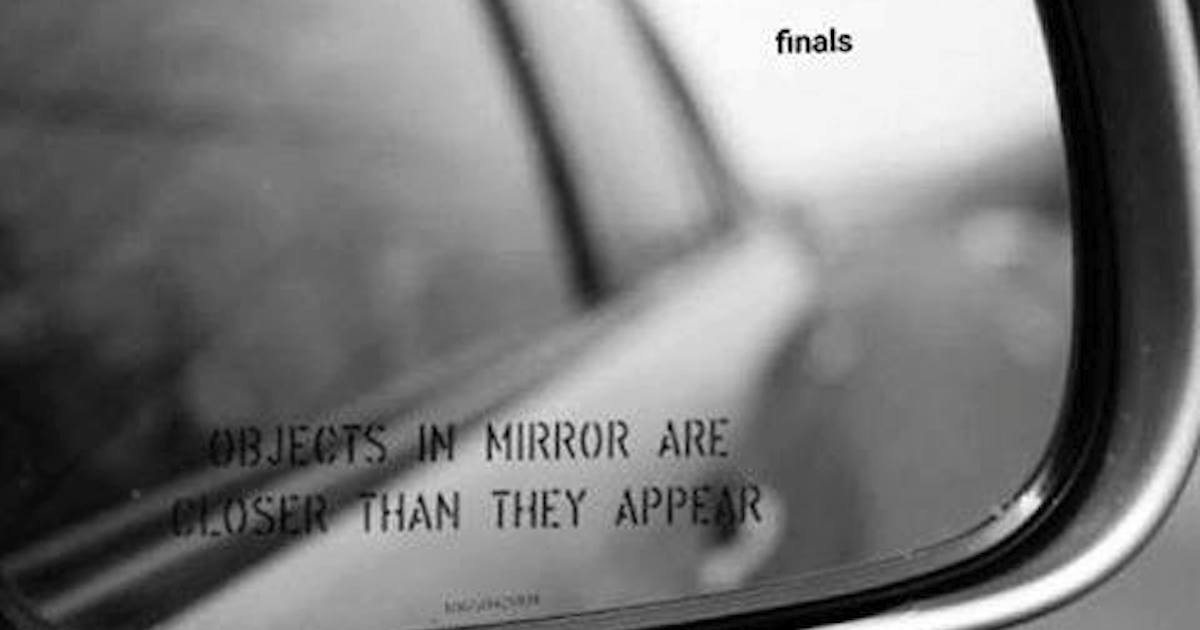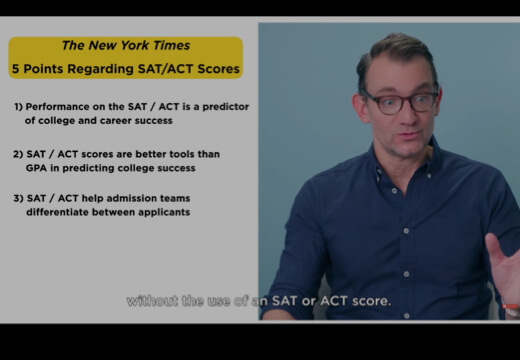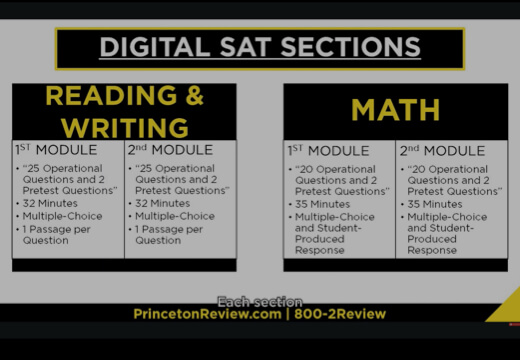Week of March 30, 2025
How to Appeal Your Financial Aid Award
Your financial aid award package is only an offer. Here's how to appeal for more financial aid.

Top 10 College Majors
These top 10 college majors offer unique intellectual challenges and develop skill sets that will be applicable to ...

Calculate Your GPA With Our GPA Scale
The GPA scale is a key factor in college admissions. Learn how to calculate your GPA on the 4.0 grade ...

ACT Scoring Chart: Calculate Your Score
Check out a sample ACT scoring chart, and learn how the ACT is scored.

10 Ways to Overcome Test Anxiety
Test anxiety has the power to derail weeks and months of hard work. Check out our top 10 test anxiety ...
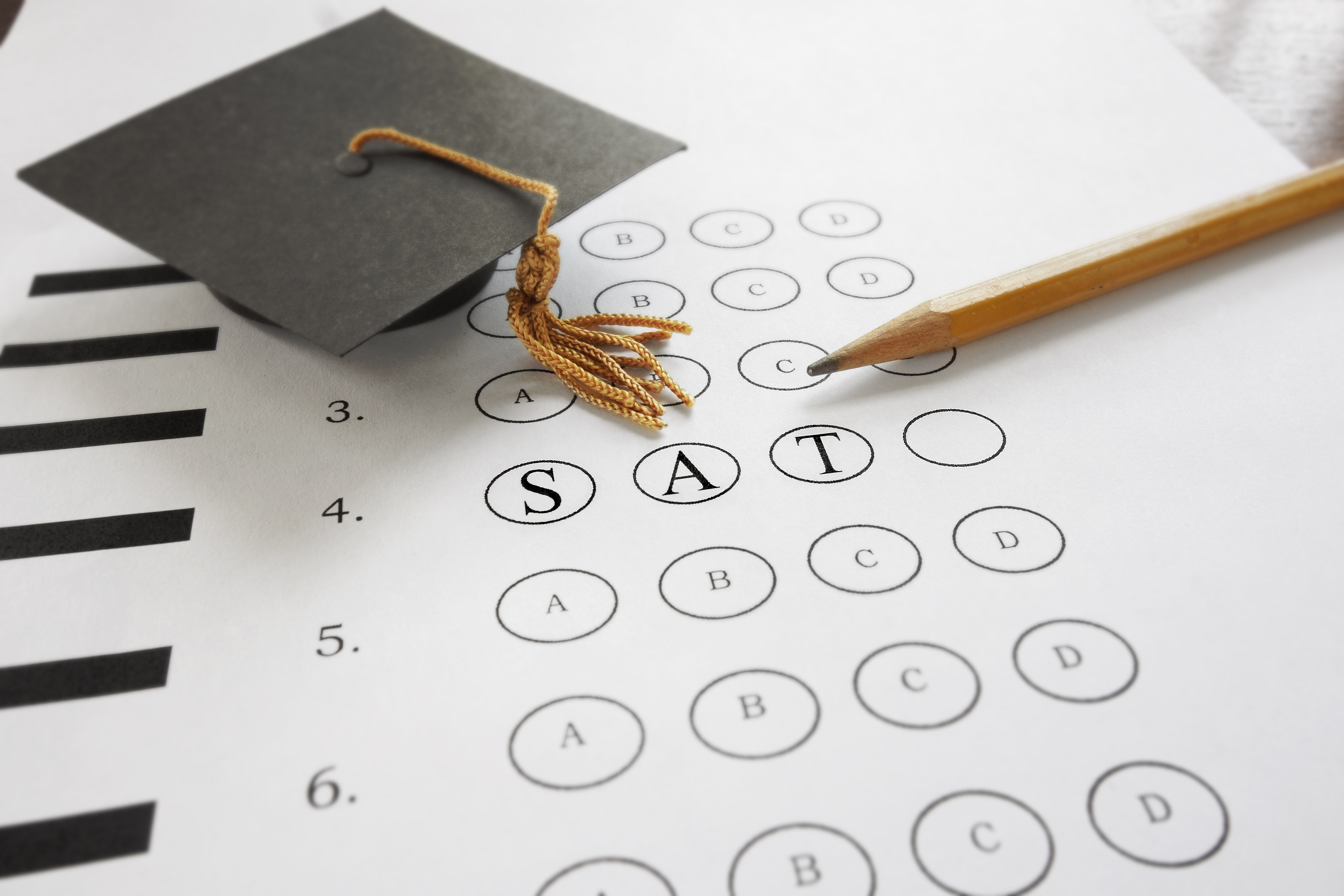
What Is a Good SAT Test Score?
What is a good SAT test score? Find out if your score is—and see what happened when "Patriot Act" host Hasan ...

What is a Good ACT Score?
A good ACT score depends on the average ACT scores for the colleges you are considering. Learn what makes a good ...

Popular College Application Essay Topics (and How to Answer Them)
Find out how to tackle the common application essay prompts—and get your ...

ACT Tips and Tricks to Reach Your Target Score
These ACT tips may be simple, but they are extremely effective. Learn how to use the ACT ...

Guide to Choosing College Majors
Everything you need to know about college majors and how to choose a major that's right for you.

Write a High School Student Resume for College Applications
A high school student resume gives colleges a snapshot of your accomplishments ...

Crafting an Unforgettable College Essay
The college application essay is your chance to show schools who you are. Learn how to write a ...
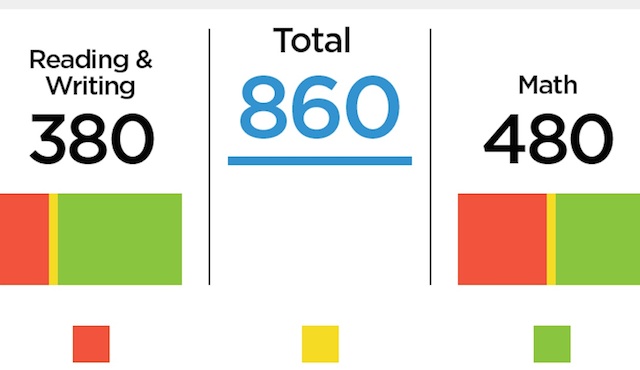
Guide to Your PSAT Scores
Have questions about your PSAT scores? Learn which scores to focus on and how you can use your PSAT score report ...

How to Study for a Test: 10 Steps To Ace Your Next Test
Not sure how to study for a test? Follow our tips for the best way to study and ...

What High School Classes Do Colleges Look For?
Learn how to pick the high school classes and electives that colleges look for on your ...

How Long is the SAT?
Find out how long the SAT test takes to complete, and learn the SAT timing tips you need to stay on track.

60 Questions To Ask on Your College Tour
Chat up the real experts on campus—the students. Our list of questions to ask on a college tour ...

6 Question Types You WILL Face on the ACT Math Test
Plenty of ACT math practice will help you prep for the ACT Math Test. From algebra to ...

When Should You Take the SAT or ACT?
Debating when to take the SAT or ACT? Pick your best SAT and ACT test dates with our expert advice.

ACT vs SAT Score Conversion Chart
Can your ACT test score predict how well you will do on the SAT? Find tools and charts for SAT and ACT ...

6 Quick Tips For Contacting Colleges
Want to make the right impression when e-mailing a college admissions officer? Keep these tips in mind ...

14 Summer Activities to Boost Your College Application
High school summer activities can give you a boost over other college applicants with ...

Waitlisted for College? Here's What To Do Next
Chart your next move with these college waitlist strategies.

6 ACT English Tips for Any Passage
Learn our expert ACT English tips and strategies, and score higher on the ACT English Test.

6 Ways to Boost Your SAT Reading Score
These SAT reading tips will help you conquer the SAT Reading Test. Learn the reading comprehension ...

AP Test Scores
AP scores can earn you college credit and show schools that you are up for an academic challenge. Learn how to prep for AP ...

4 Reasons to Take BOTH the SAT and ACT
Taking both the SAT and ACT can increase your admissions options and cut down on college application ...

Sample ACT Essay Prompt (and How to Tackle It)
Get a peek at a sample ACT essay prompt and learn how to write a high-scoring ACT essay.

Which Colleges Superscore the ACT?
Find out which colleges superscore the ACT so you can create your best application strategy.

Top 12 Questions to Ask Your College Counselor
Make the most of your time with your college counselors with our list of 12 must-ask ...

Guide to Transferring Colleges
Thinking about transferring colleges? Here’s an overview of the college transfer process, from why to how.

How to Appeal Your Financial Aid Award
Your financial aid award package is only an offer. Here's how to appeal for more financial aid.

Colleges That Are Still Accepting Applications for Fall 2019
Decision Day may have come and gone, but many colleges and universities are ...

ACT Reading Strategies to Boost Your Score
The ACT Reading Test is different from the tests you take in school. Learn the ACT reading ...

How to Calculate Your SAT or ACT Superscore
Best score, all scores, or superscore? Learn how to calculate your SAT or ACT superscore and ...

College Admissions Officers Are Reading Your Tweets
It’s always possible that an admissions officer might look you up online. Get our expert ...
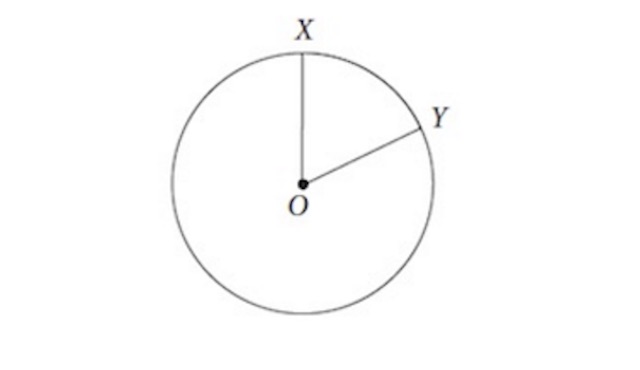
SAT Practice Questions
Taking the SAT? Test your skills for the math, reading, writing and language sections with these sample practice ...

Merit Scholarships for SAT and ACT Scores
Yes, there are merit scholarships for standardized test scores. Learn how better SAT and ACT ...

How to Choose Dream, Target, and Safety Schools
Applying to college? Learn how to identify dream, target, and safety schools unique to you.

3 Essential SAT Tips and Strategies
Taking the SAT? Get the best SAT tips and strategies from our test prep experts.

How To Compare Colleges and Find Your Target Schools
Trying to compare colleges to find your best fit? These seven sources of college ...

How to Study for Finals
Learn how to study for finals with our expert advice. We'll help you make a game plan to ace your final exams.

6 Ways Hobbies Can Help You Get Into College
Hobbies can you help you prepare for—and get into—your dream college. Learn how hobbies can ...

Homework Wars: High School Workloads, Student Stress, and How Parents Can Help
Recent studies show that high school students are seriously ...

5 Benefits of Taking AP Classes in High School
AP classes are a smart choice! Learn how taking Advanced Placement classes can boost your GPA ...

3 Skills All Communications Majors Must Have
Are you a communications major looking to utilize strong media, public speaking & writing ...

How to Apply for College
Your college application shows schools who you really are. Here's everything you need to know about perfecting your ...

Get Ready for AP Exams
Start prepping early for AP tests. Learn how to create your perfect study strategy and ace your AP exams. Here are ...

Need-Based Aid vs. Merit-Based Aid
Learn the difference between need-based and merit-based aid to take every opportunity to lessen the ...

How to Bounce Back from Bad Grades
Bad grades? You can still end up where you want to be if you take action now. Follow these 5 steps to ...

How to Find Your Best Fit College
College is not one-size-fits-all! Find out how to decide which college is right for you in terms of ...

12 Study Tips for Back to School
Back to school is the time to break same-old homework habits. Get the study tips you need to navigate the ...

Top College Interview Tips
Admissions officers want your college interview to go well too! Our college interview tips will help you prepare.

Should You Apply Early Action vs Early Decision?
Learn if applying to college early action vs early decision can help you or hurt you.

4 Reasons to Consider Community College
If you're worried about the cost of tuition at your dream school, consider starting at a community ...

How Long is the ACT?
Learn how long is the ACT, including how much time each section of the ACT takes. Practice the ACT pacing strategies ...

Guide to Your SAT Subject Test Scores
Learn how colleges use your SAT Subject Test scores during the admissions process and what’s a good ...

6 ACT Math Tips to Improve Your Score
Learn the expert ACT math tips and strategies you need to feel confident on test day.

Get the Most Out of Your College Visits
Visiting campus will help you learn if a college is right for you. Here’s our checklist for what to ...

6 Tips on how to get Scholarships for College
Learn how to get college scholarships for your good grades, your talents, and interests. Check ...

Which High School Classes Prepare You for the SAT and ACT?
Wondering if topics from your courses will appear on the SAT or ACT? Learn which ...

SAT vs SAT Subject Tests
Find out the differences between SAT and SAT Subject Tests from how scores are used by colleges to how to study.

How Does Financial Aid Work?
Curious about financial aid? Uncover the workings: how does financial aid work? Explore cost of attendance, ...

College Admissions Guide: Process and Prep
Learn about the college admissions process from start of finish. Find out about college search, ...
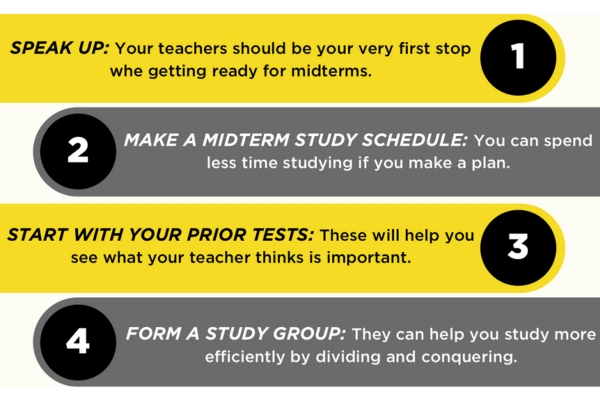
10 Ways to Study for Midterms
Midterm exams don’t have to be stressful. Check out our expert strategies for how to study for midterms.

ACT Practice Questions
Get free ACT practice questions for the Reading, English, Math and Science sections on the ACT exam.

AP Quizzes, Reviews & Study Guides
Are you ready for your AP exams? Try our free AP quizzes and subject guides.

What is Rolling Admission?
Rolling admission colleges are not all alike. Learn what it means when colleges accept applications on a rolling ...

Applying to College as a Student Athlete
Learn about your sports options in college and get college admissions tips for student athletes ...

SAT Math Practice Questions: Uncover the SAT Math Section
Learn what will appear on the SAT math section, and then challenge yourself with ...

Score AP Credit for College
AP credit is college credit for high scores on AP exams. Here's how to find out if you're subject scores will ...

AP Bio Pop Quiz
Are you ready for the Advanced Placement Biology Exam? See how you’ll score with our AP Bio pop quiz, and find study tools ...

What Do College Counselors Do?
Learn how college counselors help high school students navigate the college admissions process and the ...
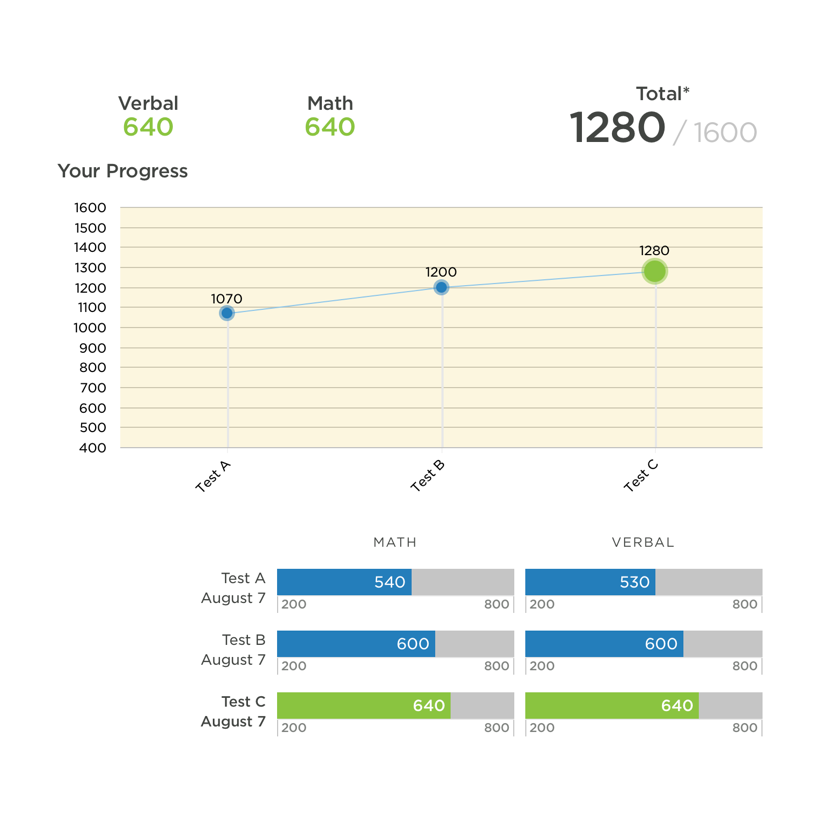
Your Guide to SAT Scoring
We share everything you need to know about SAT scoring. including how to read your SAT score report and how to ...

5 Study Tips to Get You Through Finals
Are you ready for final exams? Rev up your study routine with our favorite finals study tips and ...

How to Ace the SAT Writing Test
You don’t have to be a grammar star to ace the new SAT writing test. Learn strategies that will boost your ...

9 Ways to Stop Homework Distractions and Get Your Work Done
Learn how to defeat homework distractions once and for all.

8 Easy Ways to Finish Your Homework Faster
Have more homework than ever? These tips will help you spend less time on homework while getting ...

ACT Pop Quiz
Practice for the ACT with our pop quiz. Each ACT practice question has a detailed explanation so you can see how to crack it.

Guide to Advanced Placement Classes
Get expert advice on which AP courses will make your college application stand out.

What to Expect Freshman Year in High School
Freshman year marks the start of your college admissions journey. Here’s what you can expect as ...

How to Get Great College Letters of Recommendation
Colleges use letters of recommendation to assess your goals and character. Getting a ...

How Extracurriculars Help Your College Application
Use extracurricular activities on your college application to demonstrate your passion, ...
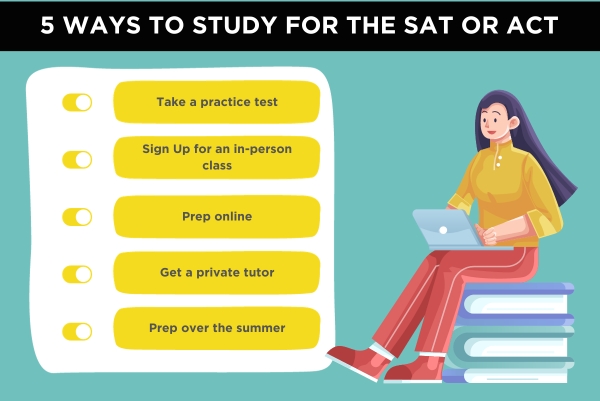
5 Ways to Study for the SAT or ACT
Master test season with early prep! Learn how to study for the SAT or ACT, from practice tests to ...

QUIZ: Advanced Placement U.S. History Pop Quiz
Are you ready for the Advanced Placement U.S. History Exam? See how you’ll score with our AP ...

FAFSA Deadlines & Dates
Applying for college financial aid? You’ll have to complete the FAFSA form. Here's what you need to know about FAFSA ...

Your Guide to the Common Application
The Common Application for 2017-2018 is live! Learn about the benefits of submitting the Common App and ...

12 Savvy Ways to Pay Less for College
Expert financial aid tips from the author of our book Paying for College Without Going Broke.

QUIZ: Advanced Placement World History Pop Quiz
Are you ready for the Advanced Placement World History Exam? See how you’ll score with our ...

Why You Need a College Counselor
Learn why you need a college counselor and how you should use your counselor throughout the college ...

SAT and ACT Accommodations for Students with Learning Differences
Are you a student with a learning difference? You may be eligible for ...

What to Look for in a Game Design School - Presented by Our Partners
Explore features to look for in a Game Design school that maximize your opportunities for learning ...

AP Biology Exam Guide
Check out our free Guide to the AP Biology exam. These are the topics and question types you need to know for your AP ...

Evaluating Your Financial Aid Award Letter
The bigger financial award is not always the better award. Learn how to evaluate your financial ...

PSAT vs SAT: The Differences and How to Prep for Both
PSAT vs SAT: Don't choose between them! Learn why preparing for the SAT is the ...

What Independent Students Need To Know About Financial Aid
Filling out the FAFSA? Learn how independent students or students with unusual ...

Last-Minute Tips for Acing Your Midterm Exams
Do you have midterm exams coming up? Follow these last-minute test tips to boost your midterm ...

QUIZ: AP Chemistry Pop Quiz
Are you ready for the Advanced Placement Chemistry Exam? See how you’ll score with our AP Chem pop quiz, and ...
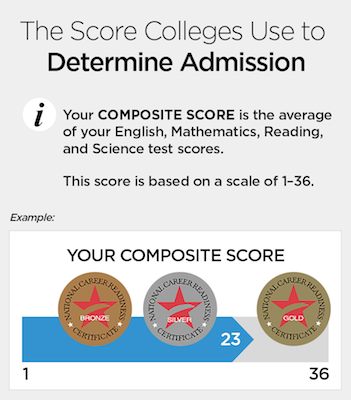
Your Handy ACT Scoring Guide
Our ACT Scoring Guide will help you understand your scores. Learn about composite scores, ACT percentiles, and ...
